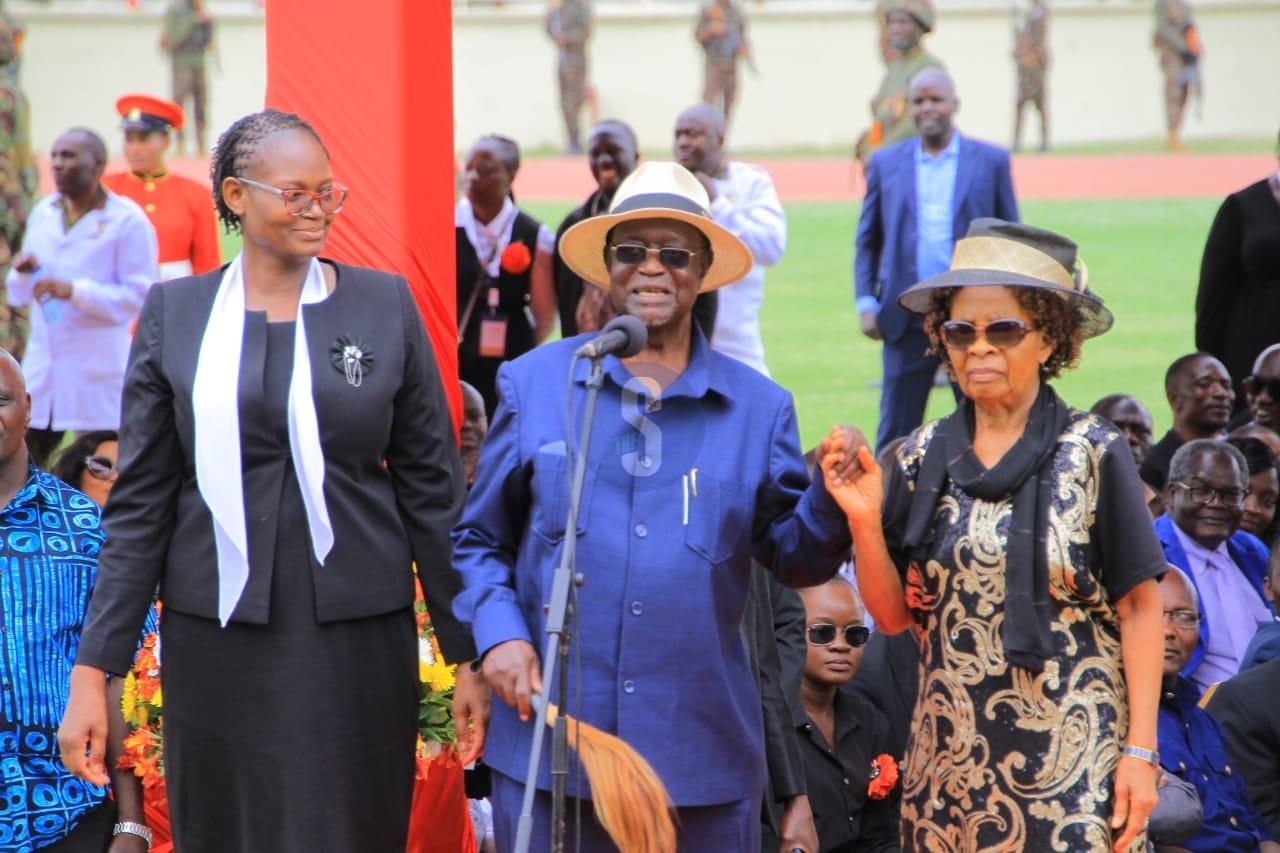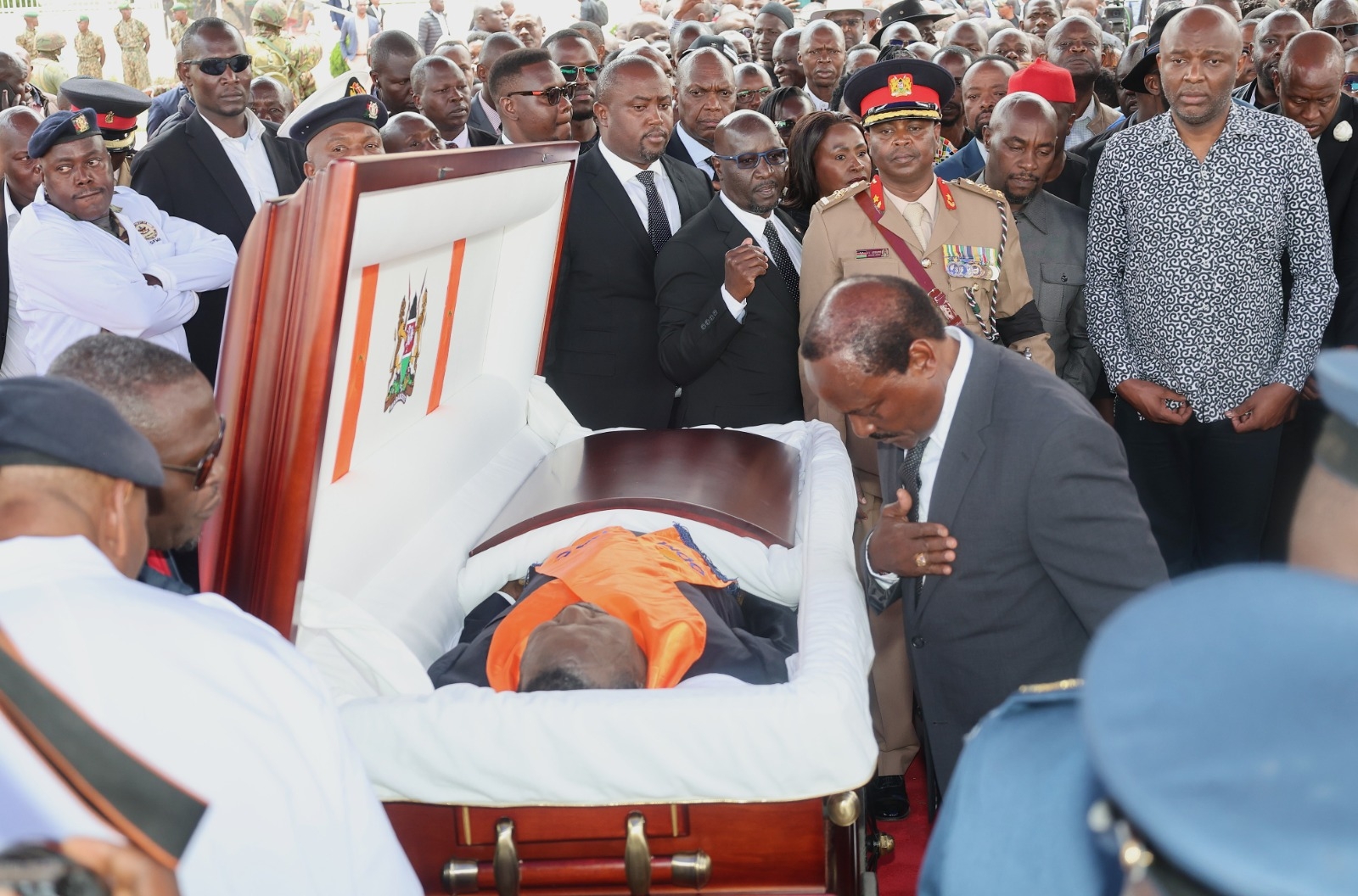Azimio coalition leader Raila Odinga has refuted claims by the Kenya Kwanza government that the 'handshake' contributed to the collapse of Kenya's economy.
In an interview with Citizen TV, Raila clarified that there was no formal 'handshake government,' contrary to what some leaders have suggested.
He explained that his agreement to shake hands with then-President Uhuru Kenyatta was based on a Memorandum of Understanding signed following the election dispute, not on forming a government.
"A lie repeated several times becomes the truth; first there was nothing like handshake government, every Kenyan knows that, we only agreed to shake hands with Uhuru Kenyatta on the basis of a Memorandum of Understanding that we signed after the dispute and that MoU is available," Raila said on Wednesday.
"I was never in government, the people talking about handshake government were the ones who were in government, they were earning big perks of salaries and then they are saying the government was broke, what were they doing in that government?" Raila paused.
He said ODM was never in government, adding that those in government were criticizing it because they were campaigning to succeed it.
On March 9, 2018, Kenya experienced a pivotal moment when opposition leader Raila Odinga and former President Uhuru Kenyatta reconciled through a symbolic "handshake."
This act, celebrated globally as a display of statesmanship, marked the end of their longstanding rivalry for the nation's betterment.
The handshake led to the formation of a task force to address historical injustices and chart a prosperous future, bringing hope to their supporters and calming the political atmosphere.
Their initiative, the Building Bridges Initiative, aimed to tackle nine key issues: ethnic antagonism, national identity, inclusivity, devolution, divisive elections, security, corruption, shared prosperity, and responsibility.
This significant reconciliation followed the controversial August 2017 general elections, which were plagued by violence, rigging allegations, and a Supreme Court verdict nullifying Uhuru's initial victory due to election irregularities.
The post-election period was tense, with over 66 fatalities resulting from clashes between protesters and police.
Raila eventually withdrew from the rescheduled October 26 elections, citing the electoral commission's failure to implement necessary reforms.
Additionally, the Opposition leader, Raila Odinga, urged the Kenya Kwanza government to cease blaming others and concentrate on advancing the nation's progress.
He recalled that when he, along with the late former President Mwai Kibaki, assumed office in 2013, they encountered a near-bankrupt Treasury.
Despite this, they took decisive action to improve the economy. Odinga expressed his bewilderment at the Kenya Kwanza administration's continued criticism of the previous regime, more than a year after taking power.
He argued that one year is a sufficient period to foster wealth creation and shift the country's trajectory.
"I see now more than a year later they re still blaming the previous government in which they served that it took over empty coffers, if you took over empty coffers you have been in government for one year why have you not created wealth in that period of time," Raila said.
He however maintained that even though the government is supposed to pay existing debts, increasing taxes is not the only way though which revenue can be raised.
"When these people are talking about debt, you need money to pay those debts but increasing tax is not the only way to raise revenue, you can collect revenue without increasing taxes and that is what we did," Raila said.












